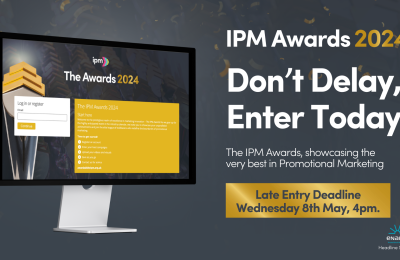Paul Cope, Managing Director of the IPM, shares his 10 golden rules for how agencies can help get things off on the right foot with their (potential) new client and transform pitch performance.
The humble pitch – the traditional lifeblood of agency business development – has come in for a bit of a kicking recently. Murky tales of stolen ideas, ludicrous timings, phantom budgets, bulging pitch lists and inadequate briefs have been alarmingly rife over the past few years.
Clients cop the majority of the flak for this and it’s true we’ve seen some less than desirable behaviours, perhaps fuelled by the luxury of ample choice combined with the intense pressure to protect margin. Indeed, the excellent ‘Finding an agency’ guide published by ISBA and the IPA this week looks to address the client-side challenges.
But this is a two-way street. The best, most effective campaigns are always built on a mutually respectful relationship between the client and the agency, and the way the agency carries itself throughout the pitch process will influence the parameters of this. The die is cast and the agency is often complicit in a disagreeable long-term outcome by accepting unreasonable terms at the outset.
A pitch then isn’t just a means for an agency to pick up some new business, it’s also an opportunity for the agency to promote its culture, belief system and ways of working to the client. Without doing that, let’s face it, it’s not really a relationship with any chance of longevity, it’s a transaction.
With this in mind, here are my 10 golden rules for how agencies can help get things off on the right foot with their (potential) new client and transform pitch performance…
1. Remember: it’s a marathon not a sprint
‘Pitching’ isn’t just your response presentation. It’s a multi-faceted test of skill which begins the moment the client contacts you about the opportunity and ends the day they announce the winner (and probably not even then).
2. Don’t compromise your beliefs
Identify clear principles for what pitches you will and won’t accept – the type of client you want to work with, the timings, who else is pitching and how many, the budget and so on – and stick to them. So, if you’re an agency that doesn’t feel it can do justice to a pitch with a verbal brief over the phone or a one-week lead-time or ten other agencies on the pitch list or no clear budget, then do yourself a favour: turn it down, explain to the client why and move on. If you think it smells rotten, it probably is.
3. Ask the right questions and listen hard
Once you’ve agreed to pitch, insist on a Q&A session with the client where you can fully interrogate their brief – face-to-face ideally, to build chemistry – and send your questions to them a day or two in advance so they can prepare. In this session, let the clients do most of the talking – your time will come. It’s often the conversations that happen ‘between the lines’ which help you understand the true nature of the brief and give you an edge over the competition.
4. Avoid unnecessary and costly over-delivery
Establish an appropriate pitch budget and monitor it carefully. It could be a percentage of the total potential annual upside of the new client/project or some other relevant calculation, it’s up to you. Resist the temptation to significantly over-deliver in areas that won’t influence the outcome (yes Mac visuals, I’m looking at you), especially if you’re doing it to compensate for other, more important aspects of the brief which you’ve inadequately considered. It’s the quickest way to erode your margin before you’ve even been appointed.
5. Play your A-team
The pitch team is always the best possible group of people for that particular client and brief. Not necessarily the most senior – the best. You can arrange to introduce other agency members later in the process as appropriate. A sub-optimal pitch team will most likely leave you with a big bill for time (and pizzas) and bad news to share.
6. Be an expert
Always play to your strengths – be brilliant at being you, it inspires confidence – and never attempt to blag disciplines you can’t clearly demonstrate expertise in. Shrewd, experienced clients can smell that flimsy waffle a mile off.
7. Demonstrate your collaborative nature
If creative ideas are part of the pitch deliverables, request a tissue session. Ideally, this should occur at least two weeks before the pitch presentation, so you’ve got time to make any adjustments and develop the most promising work. You won’t always be granted one, but it sends the right message.
8. Prove your work will work
Get KPIs from the client and demonstrate clearly in your response how and why your work will be effective in delivering actual, measurable results which will hit those KPIs. Getting drawn into a subjective, ideas ‘beauty parade’ rarely ends well.
9. Stand by your numbers but be ready to compromise
Be completely on top of the commercials and always leave some room for negotiation with the client’s procurement team. A sensible financial compromise position will ensure both sides feel they’ve done a good job.
10. Follow up after the pitch meeting (see point 1!)
Post-pitch presentation, try not to pat yourselves on the back too hard – even if you think it all went rather well. If the result hasn’t been announced you’re still pitching, don’t forget. Follow up on the same day with a reiteration of your key points and an offer to answer any other questions. Provide fuller responses to any questions asked in the presentation which you feel weren’t fully resolved, and send additional information or news that further supports your proposal. In short, whatever it needs. Showing how much you want it is always a good look.
Good luck!
Paul Cope is Managing Director of the IPM and was involved in agency pitch teams for more than 20 years. Which is a lot of pitches.
The IPM has partnered with new business consultancy, Ingenuity, to create an Agency Referral Service giving brands unique access to the IPM’s membership – which includes some of the very best promotional marketing and brand activation agencies in the UK.
Find out more and submit a brief here or email the team at AgencyReferrals@theipm.org.uk



























